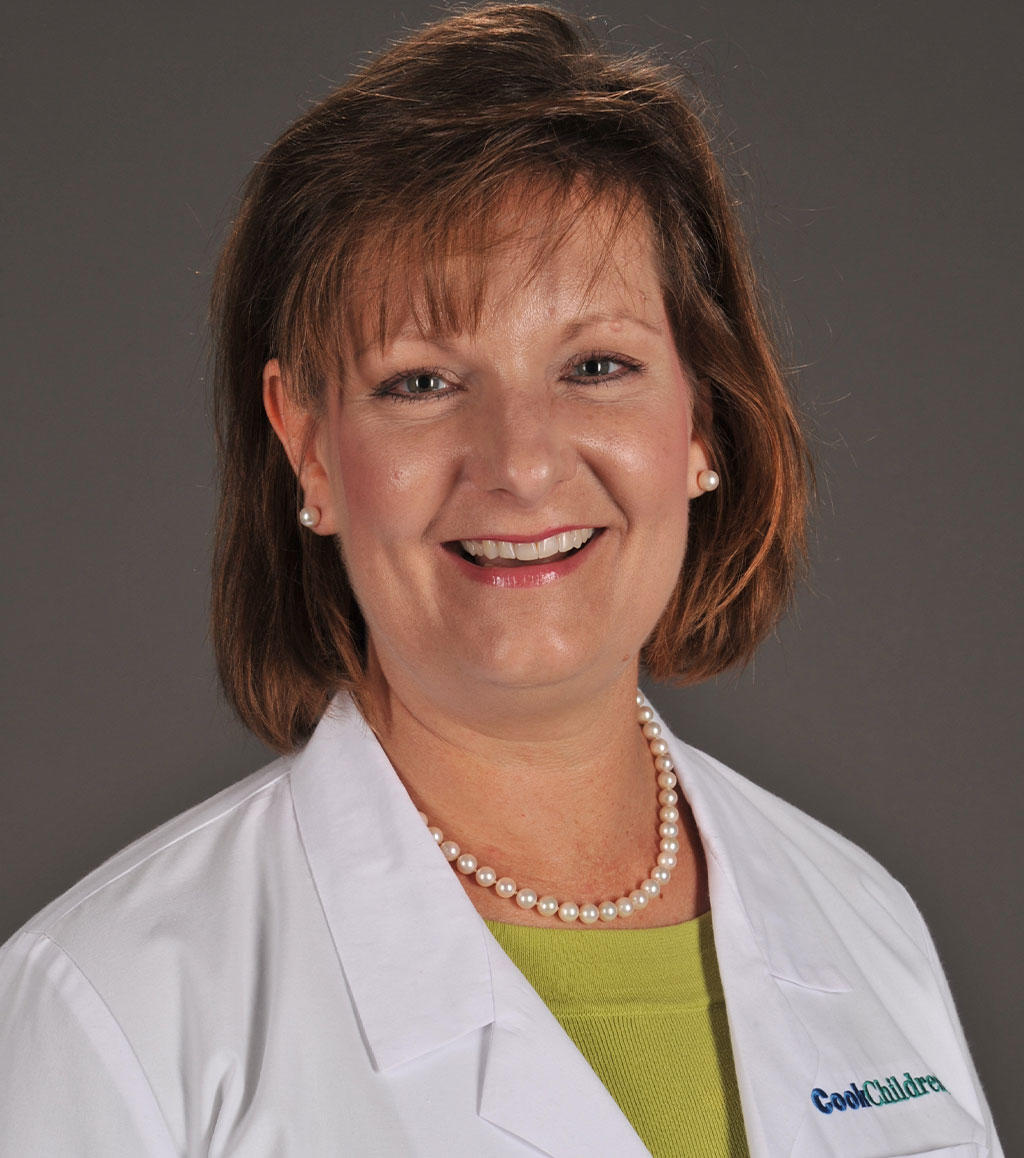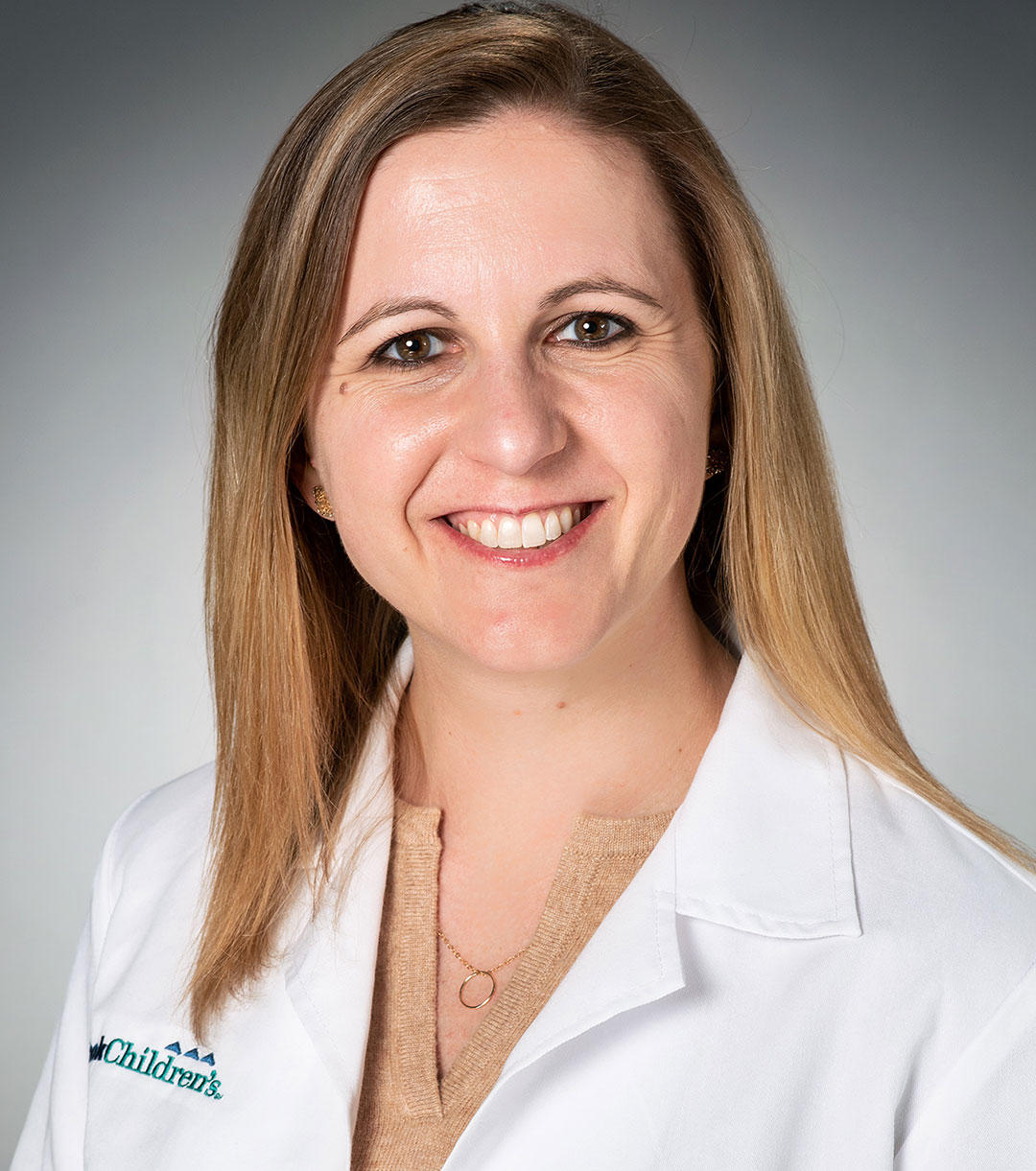Bone Marrow & Stem Cell Transplant
Certain diseases and treatments can deplete a child's healthy stem cells. Sometimes the body needs help to replenish those cells. When this happens, your child may require a very complex process called a stem cell or bone marrow transplant.
Since 1986, Cook Children's Bone Marrow and Stem Cell Transplant program has performed more than 1,000 transplants in children with cancer, blood disorders or inherited conditions. That's what makes this program one of the more diverse and experienced pediatric transplant programs in the Southwest.
Cook Children's is a member of:
- The Center for International Blood and Marrow Transplant Research (CIBMTR)
- The Children's Oncology Group (COG) stem cell transplant section.
Over the last three years, 30 to 40 transplants were performed every year for a variety of diseases, with leukemia being the most common primary diagnosis.
Why our stem cell program?
Offering the best treatment with the highest quality of care is of the utmost importance. At Cook Children's, we are committed to innovative clinical research, as well as advancing the field of stem cell transplants and improving patient outcomes. We achieve this through excellent clinical care at the bedside, extensive quality initiatives and benchmarking our outcomes against large national and international academic transplant centers.
Common referral diagnoses:
- Acute lymphoblastic leukemia
- Acute myelogenous leukemia
- Myelodysplastic syndrome (MDS)
- Lymphoma
- Neuroblastoma
- Immune deficiency
- Inherited disorders of metabolism
What are stem cells?
Stem cells are cells in the body that have the potential to turn into anything, such as a skin cell, a liver cell, a brain cell, or a blood cell. Stem cells that turn into blood cells are called hematopoietic stem cells. Hematopoietic stem cells can be found in bone marrow (the spongy tissue inside bones), the bloodstream, or the umbilical cord blood of newborn babies. These cells are capable of developing into the three types of blood cells:
- Red blood cells that carry oxygen
- White blood cells that fight infection
- Platelets that help blood to clot
Where do hematopoietic stem cells come from?
Hematopoietic stem cells may come from the patient or from a donor. Stem cells that come from an individual patient for their own use (autologus transplant) are collected from the blood through a special IV catheter after receiving chemotherapy. These cells are frozen before the child or teen undergoes a transplant. These stem cells are then thawed and put back into the patient's body after high-dose chemotherapy treatment is complete.
Donor stem cells come from a compatible family member or through a match from a worldwide registry of donors. Depending on the particular needs of your child, one or all three types of a donor's stem cells will be considered:
- Peripheral blood stem cells are harvested from donated blood.
- Bone marrow stem cells are collected from the donor's hip bone through a surgical procedure.
- Cord blood stem cells are collected from the umbilical cord at time of delivery and are then frozen for later use.
While all three types of blood cells can replenish a patient's blood and bone marrow cells, there are advantages and disadvantages to each. The doctor will discuss these issues and suggest the best type of stem cell for your child's illness.
National Marrow Donor Program (NMDP) transplant center since August 1990
Cook Children's Bone Marrow and Stem Cell Transplant Program has performed multiple autologous and allogeneic transplants, making it one of the more diverse and experienced pediatric transplant programs in the Southwest.
Our specialty care team
Additional team members
-
 Angela Brentlinger
Angela Brentlinger
MSN, RN, CPNP -
 Amber Nelson
Amber Nelson
MSN, RN, CPNP-AC
Active research studies
-
10-CBA, A Multicenter Access and Distribution Protocol for Unlicensed Cryopreserved Cord Blood Units (CBUs) for Transplantation in Pediatric and Adult Patients with Hematologic Malignancies and Other Indications
Primary Investigator: Eames MD, Gretchen
IRB ID: 2023-095 (OPEN)
-
Blood Collection for National Marrow Donor Program
Primary Investigator: Eames MD, Gretchen
IRB ID: 2019-062 (OPEN)
-
CliniMACS CD34+ T-cell Depletion of a Haploidentical Stem Cell Product as Part of a Treatment Protocol for Patients with Bone Marrow Failure
Primary Investigator: Howrey MD, Richard P.
IRB ID: 2018-041 (OPEN)
-
HPC-Cord Blood 6637-01, A multicenter safety study of unlicensed, investigational cryopreserved cord blood units (CBUs) manufactured by the National Cord Blood Program (NCBP) and provided for unrelated hematopoietic stem cell transplantation of pediatric and adult patients
Primary Investigator: Eames MD, Gretchen
IRB ID: 2015-077 (OPEN)
-
Managed Access Program (MAP) to provide access to CTL019, for acute lymphoblastic leukemia (ALL) or large B-cell lymphoma patients with out of specification leukapheresis product and/or manufactured tisagenlecleucel out of specification for commercial release
Primary Investigator: Pacenta, Holly
IRB ID: 2020-101 (OPEN)
-
PROTOCOL FOR A RESEARCH DATABASE FOR HEMATOPOIETIC CELL TRANSPLANTATION, OTHER CELLULAR THERAPIES AND MARROW TOXIC INJURIES
Primary Investigator: Eames MD, Gretchen
IRB ID: 2019-061 (OPEN)
-
PRWCC_Foresight, Outcomes in Pediatric and Young Adult B-Cell Malignancies After Commercially Available Immunotherapy
Primary Investigator: Pacenta, Holly
IRB ID: 2024-059 (OPEN)
We are here to help.
If your child has been diagnosed, you probably have lots of questions. We can help. If you would like to schedule an appointment, refer a patient or speak to our staff, please call our offices at 682-885-4007.



